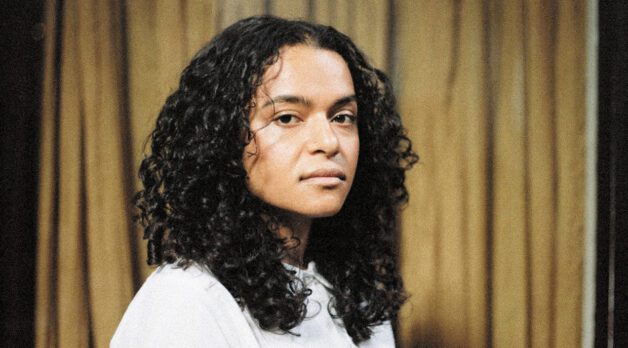Aurora Brachman
 Aurora Brachman
Aurora Brachman

During the summer of 2015, documentary director and producer Aurora Brachman—then a 19-year-old psychology major at Pomona College in southern California—took a solo trip to the Pacific island of Kiribati. She had received a filmmaking grant from the Pacific Basin Institute, and this particular locale drew her because, she says, it’s “projected to be the first country submerged due to rising sea levels.” “I had never made a film or touched a camera before,” she continues. “Frankly, I had no business doing this. But it completely changed my life.”
Upon returning, Brachman continued on the psychology track but still finished the film, despite a steep learning curve. “The obstacles invigorated me instead of discouraging me,” she reflects. Her decision to ultimately major in psychology—with an emphasis on attachment theory—fortified her directorial visions. “I continue to integrate so much of what I learned in psychology into my filmmaking practice,” she says. “I see them as being deeply interconnected.”
As her final year of college rolled around, Brachman felt compelled to return to Kiribati to make another film. After graduating in 2017, she received a Fulbright Scholarship for filmmaking and returned to live and shoot on the island for a year. The resulting project, Between the Tides, depicts Kiribati citizens grappling with the prospect of evacuating as the climate crisis encroaches.
When Brachman returned, she moved to Los Angeles and worked as an assistant on the Showtime docuseries Couples Therapy for a year. Resolving that she needed “formal training” to advance her filmmaking career, she enrolled in Stanford’s MFA program in documentary production. All four films she directed during the two-year program have had marked success, something she feels “tremendously lucky” for.
Joychild, the first film she made at Stanford, centers on a kid discussing their gender identity with their mother. Shot in black and white on a Bolex 16mm camera, the film was conceived as a “love letter” to a partner who recently came out as trans, Brachman says. The film won her a Sundance Ignite fellowship and was subsequently picked up by The New Yorker and then POV. It was also shortlisted for an IDA award.
Her next project, The Gallery That Destroys All Shame, found Brachman co-directing with her classmate Jessie Zinn. Chronicling a class where people gather to look at each other’s vaginas and combat gynecological stigmas, the filmmakers had only three hours to shoot without interruption; to prepare for the constraint, they filmed their own vaginas “as a practice to see how we felt sharing this kind of intimacy with a camera.” Because of the nudity, the film struggled to be distributed but was eventually released as a Vimeo Staff Pick.
The first of her Stanford-helmed films to “ever be released in the world” (via NYT Op-Docs), Club Quarantine was made during COVID lockdown on campus when Brachman “was very isolated and had nothing better to do.” Filming a daily queer Zoom dance party “obsessively” for two months, Brachman was moved by the persistence of queer communities when physical gatherings were no longer an option. (“I cried a lot.”) The film also essentially served as her coming out, especially when the NYT commissioned her to write an adjoining article on queer nightlife.
Still Waters, Brachman’s thesis film, probes even deeper into personal territory while implementing her psychology skillset. Albeit entirely off-camera, the film utilizes the adult attachment interview, which involves participants describing parental relationships through adjectives and corresponding memories. Originally, Brachman wanted to “create a collective portrait of attachment” through archival audio. She eventually settled on interviewing her own mom (and vice versa), unveiling a traumatic event in her mother’s past in the process. The film, which her mother still has not watched—a move that Brachman “fully respects”—is scheduled to release on POV in November,
Her feature debut, currently in production under the working title Dear You, “comes full circle” by following Grace James, a Kiribati woman currently living and seeking asylum in the United States after leaving an abusive husband many years ago. To process the domestic trauma and dwindling environmental likelihood of returning to her homeland, Grace attends dance therapy sessions. “In Kiribati, dance is a huge part of their culture and is believed to have magical properties,” says Brachman, who hopes to release the film in early 2025. Brachman also continues to work as a documentary producer, associate producing Peter Nicks’s Stephen Curry: Underrated and co-producing the upcoming Boys State sequel, Girls State.
“What drew me to psychology was a real curiosity about myself and other people,” elaborates Brachman on her overall directorial inclination. “That same aching desire to understand draws me to documentary filmmaking.”—Natalia Keogan/Image: Shreya Kumar
